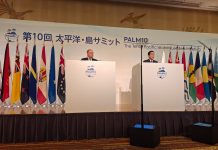The Asian Development Bank (ADB) this week approved $3.8 million to support the restoration, conservation, and management of coral reefs in four countries in Southeast Asia and the Pacific.
The project, financed by the Asia-Pacific Climate Finance Fund (ACliFF) and the Global Environment Facility (GEF) will develop climate risk financing and insurance solutions to protect coral reef ecosystems in Fiji, Indonesia, the Philippines, and Solomon Islands.
“The development of innovative coral reef financing and insurance models under this project will not only enhance and support the effective management of risks coral reefs are exposed to, but also improve the climate resilience and insurability of coastal assets and communities,” said Chief of ADB’s Financial Sector Group Junkyu Lee. “Many of these coastal communities also depend on the ongoing health of the ocean and its ecosystems for their livelihoods.”
Rising sea levels and the increasing frequency and severity of natural hazards have devastating effects on the coastal cities, communities, and island nations of Asia and the Pacific. Healthy coastal ecosystems, such as coral reefs, are a hotspot of ocean biodiversity and a natural buffer that provide a first line of defense to protect coastal shores, assets, infrastructure, and livelihoods, as well as providing valuable ecosystem services. The Coral Triangle, which covers a vast marine region in Asia and the Pacific, is home to the highest coral diversity in the world.
ACliFF is providing US$2.5 million to the project, boosted by an additional US$1.3 million from the GEF through its “Challenge Program for Adaptation Innovation.” ACliFF supports the development and implementation of financial risk management products, such as coral reef insurance, that help provide capital for climate investments and improve resilience to the impact of climate change.
ACliFF is a multidonor trust fund managed by the ADB, established with financial support from the Government of Germany’s Federal Ministry of Economic Cooperation and Development (BMZ).
SOURCE: ADB/PACNEWS















